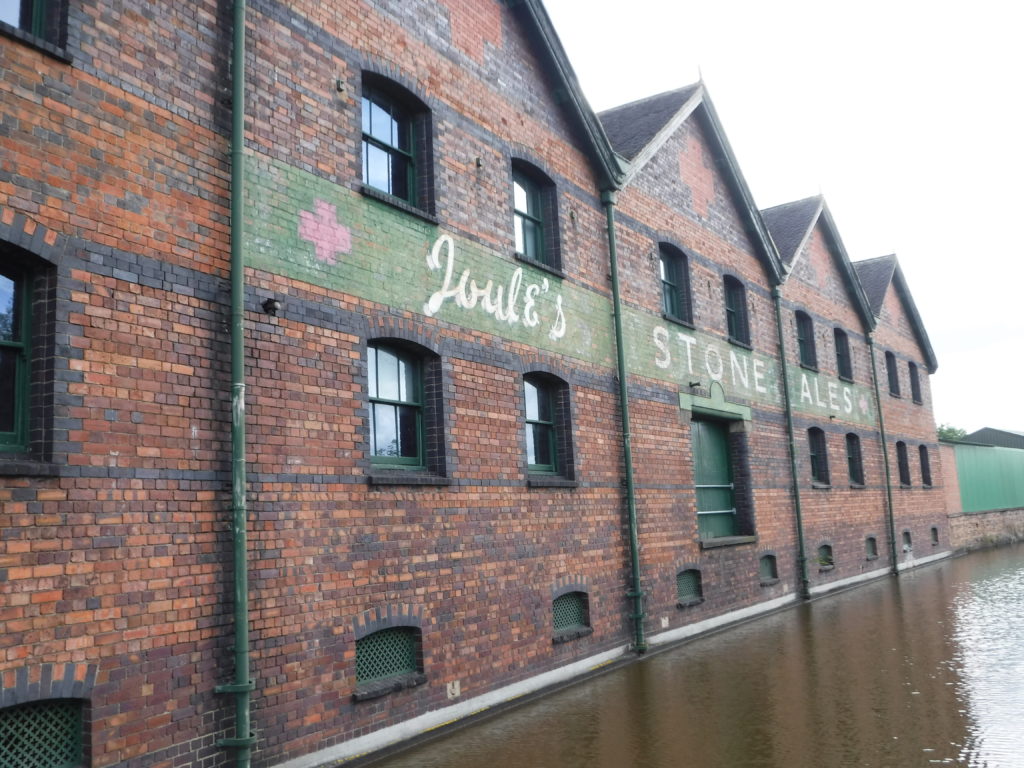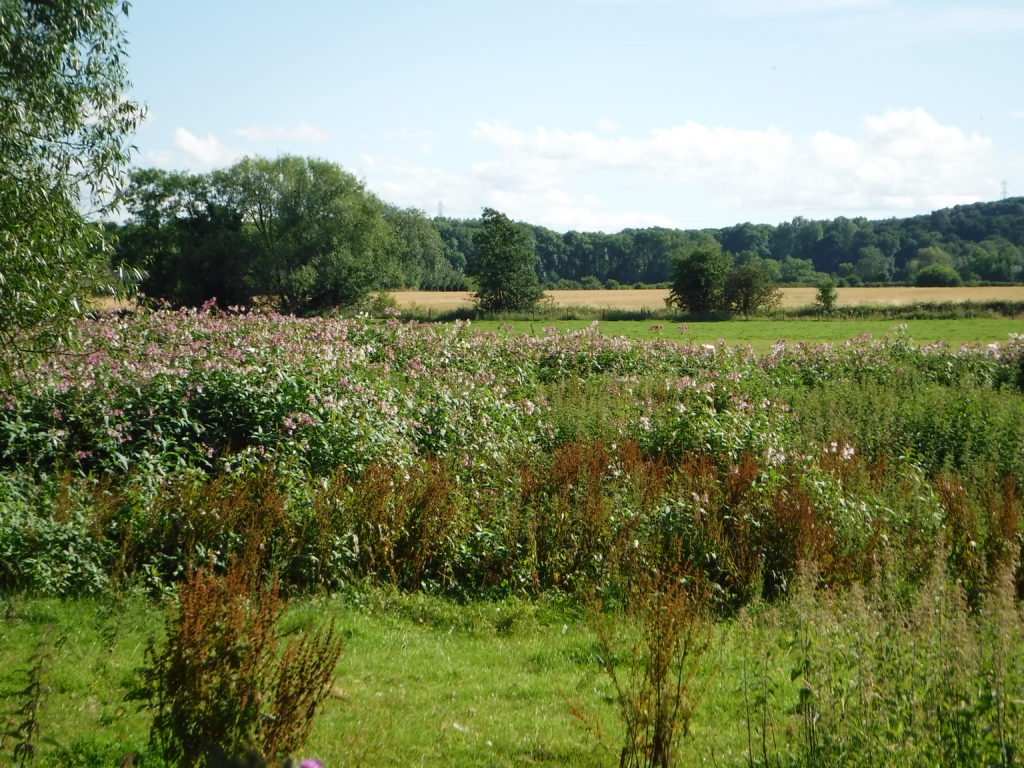Beer and Salt
If you inherit a brewery, what do you do? In particular, if you inherit this brewery that we went past today?

Many might be content to spend their days in a well financed and mildly alcoholic haze, but not James Prescott Joule. He decided to make his brewery more profitable, and around 1840 wondered if replacing the steam engines used in the brewery with the newly invented electric motors would save money. He set up experiments to determine the amount of work produced by burning a pound of coal, as compared with a pound of zinc in an electric battery. Given that zinc was a lot more expensive than coal, he found that steam engines were still cheaper. A lesser man might have given up with that discovery and relapsed into the mildly alcoholic haze mentioned above, but not Mr Joule. His investigation had convinced him that just as the heat generated by coal could be used to do work, so work could be used to produce heat. What’s more, the electricity from his battery could do work, but it could also end up as heat if you passed it through a resistor.
Over the next decade, Joule performed a series of elegant and exact experiments to prove that heat was a form of work, and with some difficulty overturned the existing scientific orthodoxy that said that heat was a fluid that could travel from one body to another or stored as fuel but could not be created from nothing. His researches led directly to the Law of Conservation of Energy and the First Law of Thermodynamics. I wonder what would have happened if he had inherited a brothel.
Today we proceeded South East and downhill, away from the urban sprawl of The Potteries and into increasingly rural countryside. The weather was good. Oh wait, let me say that louder. The weather was good. The sun was shining most of the day and the temperature got up to 75F, which is a high for the trip so far.
We are moored for the night close to a rare inland salt marsh.

Salt was produced here from the local brine pond starting around 1690, but the coming of the canal in the 1770s boosted the industry tremendously. Coal could be brought by boat to use as fuel for evaporating the brine and drying the salt. The old lead evaporating pans were replaced with steel ones which could handle the higher temperature of a coal fire. Barrels were brought in by boat from the nearby breweries, and cattle from the nearby farms. Barrels of salted beef were exported by boat to the ports on the coast, and Shirleywich became a major supplier of salt beef to the Royal Navy during the Napoleonic Wars. You wouldn’t think that a sleepy little spot like this had a direct line to the Battle of Trafalgar, but there it is.
One thought on “Beer and Salt”
joules. vs. jewels vs. Jowls. one of my kids posted a diamond encrusted glock today….. grrrrr fail fail fail.